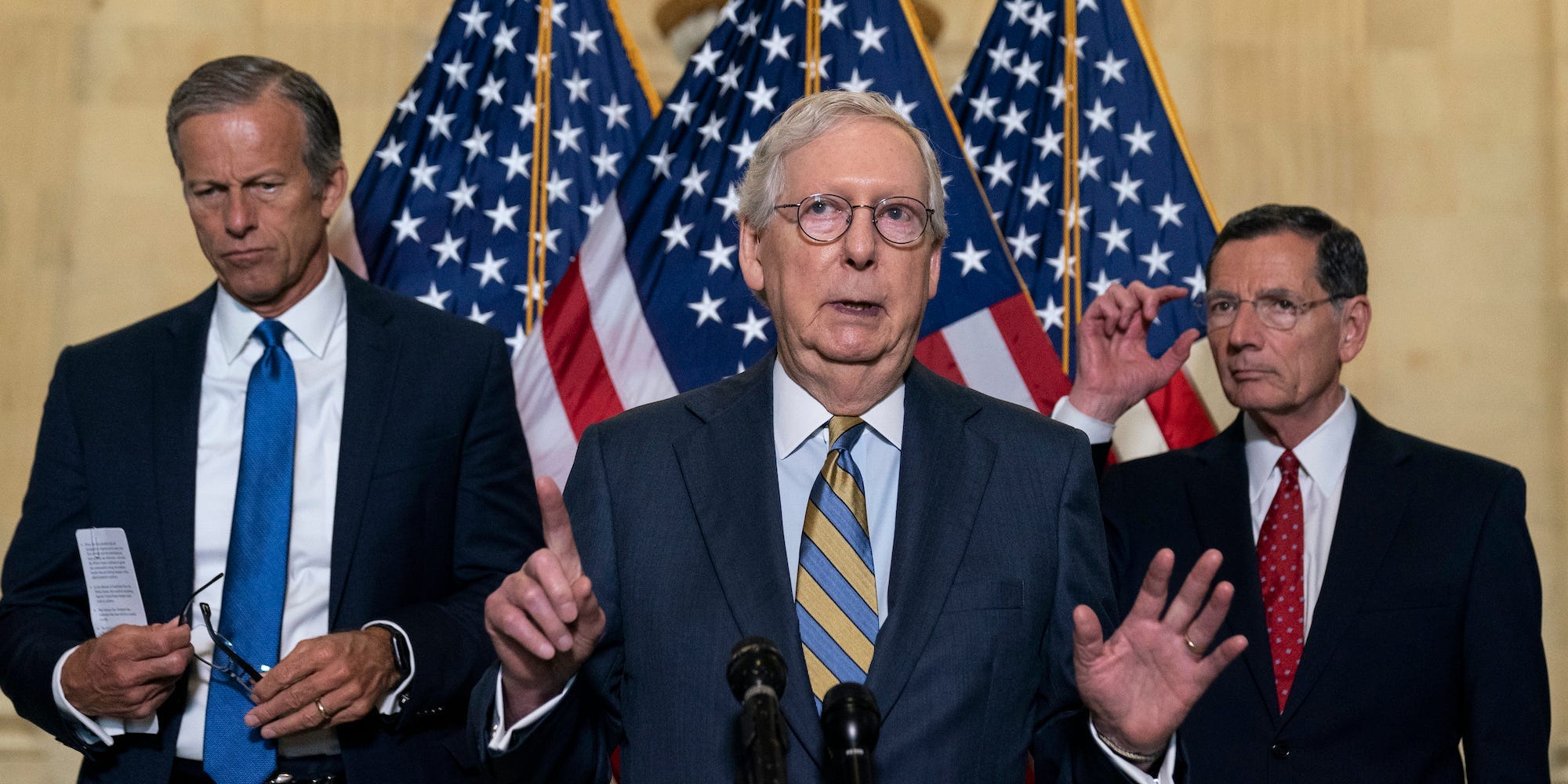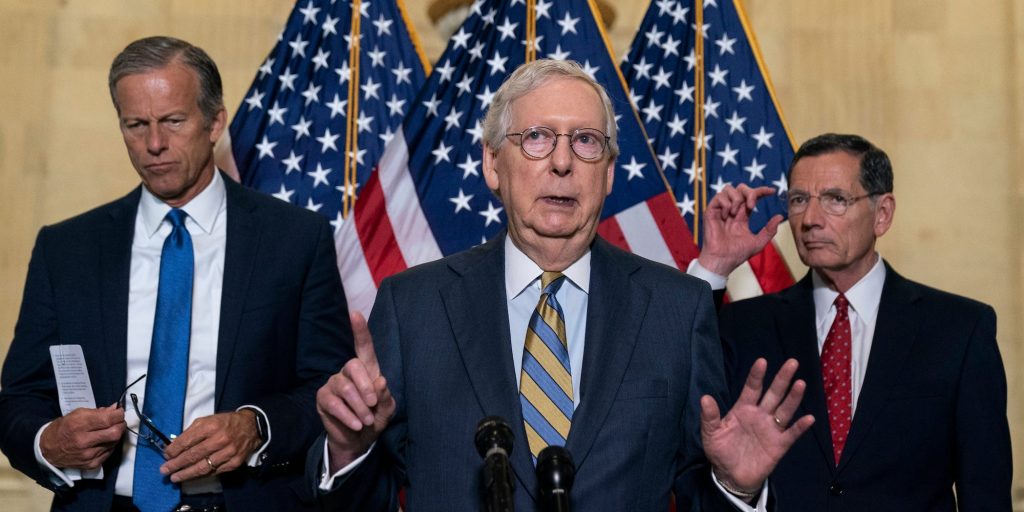
Alex Brandon/AP
- Senate Republicans are poised to block a measure aimed at avoiding default sometime early next week.
- The economic impact of a default could be severe, with abrupt halts to aid programs like Social Security.
- A Democratic-only debt hike could take at least two weeks, and there's no guarantee they can pull it off alone.
- See more stories on Insider's business page.
Senate Republicans are poised to vote to block a measure aimed at averting a government shutdown and a debt default, after it recently cleared the House.
It threatens to end with the government shuttered during a pandemic and bring the US another step closer to economic chaos.
Senate Minority Leader Mitch McConnell is making it clear that Republicans won't lend support to lifting the borrowing cap, even though he and most Republicans say it's necessary to renew the US's ability to pay its bills. The Treasury Department is currently keeping debt payments flowing, but the agency's special powers will be depleted sometime in the next month. After that, the US would default.
Since July, McConnell has maintained that Democrats have the ability to lift the debt ceiling on their own to cover the cost of their pending $3.5 trillion social spending plan. On Thursday, he called "laughable" the notion that it's too late for Democrats to address debt limit hike on their own.
"This could not be simpler," he said from the Senate floor. "If they want to tax, borrow, and spend historic sums of money without our input, they'll have to raise the debt limit without our help."
The Kentucky Republican's argument ignores that increasing the borrowing limit also deals with paying the bills for past spending. Republicans and Democrats added a hefty $8 trillion onto the national debt under President Donald Trump, a product of budget deals, GOP-led tax cuts and multiple economic rescue packages. That spending was also widely acclaimed for keeping many households and businesses afloat, and sustaining the American economy during a historic sudden freeze in business activity.
Lifting the debt ceiling also doesn't approve new federal spending. It merely authorizes the government to pay back what it already owes.
The economic impact of a default could be severe. Treasury Secretary Janet Yellen has warned of seniors missing out on Social Security checks, US soldiers going without pay, and an abrupt halt in child tax credit payments.
A recent analysis from Moody's Analytics indicated that the economy could shed 6 million jobs in the event of a default, nearly doubling the current unemployment rate to roughly 9%.
House Budget Chair John Yarmuth of Kentucky said Monday evening he believed a Democratic-only debt-limit hike could be achieved in "at least" two weeks. But in a statement to Insider on Wednesday, Yarmuth's position shifted and he said "parliamentary obstacles" blocked Democrats from completing the process as a standalone measure.
"If Democrats pushed hard on the gas pedal and they wanted to do it as quickly as they could, Yarmuth's two-week estimate is right," Zach Moller, economic program director at the center-left think tank Third Way, told Insider. "But part of the problem here is we don't know when the actual X-date is, the date we default on the debt."
A Democratic-only debt-limit hike could be an arduous, time-consuming process with no guarantee of success as the nation inches closer to default. Among those steps include completing a pair of marathon sessions known as vote-a-ramas - made even trickier for Democrats as they'd have to approve the measure in both the House and Senate with their razor-thin majorities.
Senate Democrats are not straying from arguing any debt limit increase must be bipartisan ahead of a likely vote next week. But faced with GOP resistance, some House Democrats are beginning to urge unilateral action, CNN reported.
Speaker Nancy Pelosi on Friday expressed doubt about the effectiveness of having debt ceiling at all. "The Congress has taken up a tradition of having to vote on that," she said at a Friday news conference. "There's some doubt as to whether that should be the case."

